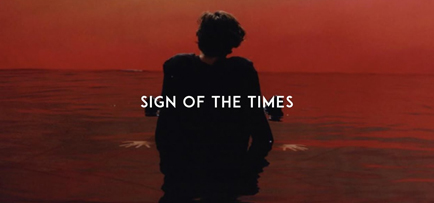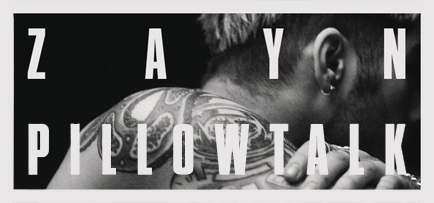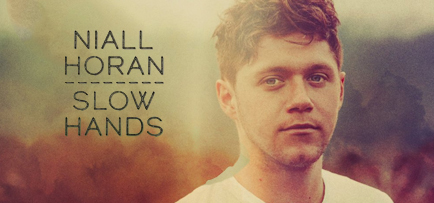Oh crap, I’m way behind schedule again. Time to rush through as many songs as I can again…
Introduction

Sign of the Times is surprisingly hard to write about. It’s a very good song, but it’s good in ways that are pretty obvious. I could talk about how the song’s young tiredness fits into the current social climate but that’s already well worn ground; the song’s basically Closer, only you don’t have to say “it’s supposed to be bad” to justify it. It doesn’t help that this aspect is so foregrounded by Sign of the Times that analysing it feels like little more than pointing at the lines and going “What this says”. I could go What Do You Mean on it instead and make up a deliberately over-the-top reading which situates it within a context it’s obviously never meant to be read in, but that’s funner to do with basically adequate material that I’m desperately trying to find something interesting to say about. To do that with a song that’s already good feels like a disservice.
Luckily, there is one context in which discussing the strengths of Sign of the Times seems useful. Last year, we had the great dissolution (sorta) of One Direction. The first person to split from the group and start a solo career was Zayn, and his arrival as a solo artist was heralded (by his production team) as a brave new frontier in which the rulebook would be rewritten and a new form of pop would come to be. Of course, this was somewhat exaggerated. After one mildly interesting single, Zayn quickly settled down into a series of uninteresting shlock, none of which I can remember the names of. This culminated in a Fifty-Shades-Soundtrack duet with Taylor Swift, a song which is stunningly empty to the point of barely constituting an example of sound. To put it politely, he’s been underwhelming. The world doesn’t need a post-One-Direction Zayn.
Yet Harry Styles has been able to carve an actual space within the pop sphere in which he’s managing to do something. And say, isn’t there another One Direction member currently trying to break as a solo act as well? The blonde one… Apparently he’s called Niall? Yeah, his song hasn’t had half the impact of Harry Styles. And what about the other one: the one whose entire act has become him threatening to get naked on the internet? Where did they go wrong and where did Harry go right?
Well, that’ll be our question then. Four One Direction members making solo careers, three of whom don’t feel like they matter at all, one of whom actually managed to make something that felt important. How did Harry manage it when his mates didn’t? Let’s wildly speculate, shall we?
SEX
If you compare the works of the three relatively unimportant ones, you’ll find a shared subject which Harry avoided: sex.
I’ve talked about sex and boy bands before. In short, most boy bands are so aggressively chaste as to be impossible to read as anything but sexual, becoming a series of teases revolving a very well defined sex-shaped hole. Because this sex is defined through it’s absence, the act of projecting sexual desires onto a boy band (as all boy band audiences do, what with them being teenage girls and that) becomes a subversive and secretive act. This is then backed up by songs which focus on secrets, intimate moments and things that only the boy band and its audience members share, creating the sensation that the boy band and each individual fan has a genuine, deep connection which is unique to them. (The fact that each relationship can’t be truly unique doesn’t matter, all that matters is what the audience feels.) Because we usually define “adult” as “not for children” and define “children” as “innocent” or “non-sexual”, former Boy Band members thus have an easy way of redefining themselves as “adult” artists: they merely take the implicit sexual nature of their songs and make it explicit. Wham bam, thank you mam: they’re now people who talk about “adult” (and thus more “serious”) topics, allowing them to attract a wider, more adult audience without alienating their previous fans or without even fundamentally changing their act that much.

Thus we had Zayn’s first song, Pillow Talk, in which the standard boyband/One Direction tropes got openly recontextualised with a sexual veneer. In it, Zayn and the listener are lovers who, for some reason, have their relationship largely frowned on by everyone around them. Their refusal to bow to societal pressures and end the relationship means that they are now pitted against the world and Zayn sees this as an all out battle, wanting sex so loud that it’ll “piss off all the neighbours” with their bed being both their “paradise and [their] war zone”. Embedded in all this is the same type of relationship that’s present in all One Direction’s music – a marginalised one in which sex is a subversive act – but the relationship is played in a much angrier way which allows these subtexts to bubble to the fore. It is also a straight rejection of the “secret” element of boy band music: Zayn is tired of having quiet sex under the covers and wants to celebrate his relationship in as violent and direct a way as possible. As such, he does, singing a boy band song with the sexual elements foregrounded in the mix. The anger in this song does at least give it an entirely different feel to boy band music, even if the mechanics under the hood are pretty much the same, and there is something satisfyingly violent about how confrontative the song actually is. You can see why it’s the second-most successful song we’ll talk about.

Niall’s song – Slow Hands – similarly ramps up the sex quota. Niall is in a club and flirts with a woman, looking forward to having sex with her. He mentions “sweat dripping down our dirty laundry”, tells us that “I want you bad”, and the phrase “slow hands” effectively makes you imagine hands carefully running over skin and being all sexy-like. But ultimately it’s a standard boy band narrative coated in a sexier lexis. Admittedly, there are a few cute attempts to do a few things differently: the lines “We should take this back to my place / That’s what she said right to my face” are, according to Liam, supposed to be a great reversal of social roles – “Usually that’s what the guy would say, but we flipped it that the girl would say that, and that’s what she said right to my face“. Alas, the song fails to carry on the reversal any longer than the first two lines; the entire rest of the song is the male main character carrying on as male main characters in these types of song do. And while the song is more rugged and gritty than was usual for One Direction, they still fit in exactly with the “Man talks about sex while playing acoustic guitar” trend that’s been common in the charts lately, and was still outdone by Zayn’s much more radically different techno direction. The result is a song that thinks it’s doing something new and radical, without realising that it’s doing the exact same thing as everyone else is. If it is new and radical, then it is in comparison to One Direction songs, which isn’t exactly a hard baseline to surpass.

And then we get to Liam, the guy who literally promised to strip naked online if his fans got his song to No. 1. The song’s called “Strip That Down”. It has Liam naked on the cover. It’s about Liam meeting a woman and wanting to “strip that down” and “hit the ground”. In the chorus, he talks about how he was in “1D” but now is “free” to be the party boy that he used to be before his 1D days. It’s just so… blatant in its intentions, and its intentions are just to shout SEX and PARTY really loudly. Its intentions are so obviously bullshit too: it’s the fourth most talented member of One Direction and (co-writer) Ed Sheeran pretending to be out-of-control, sex-crazed partiers, an act which fits both of them so badly that it just becomes funny after a while. I like to compare this song to a goat. Goats are my favourite animals because they’re goofy, scruffy buggers who nevertheless love themselves. The discrepancy between how they look and how they act is obvious, yet they don’t care. And I love them because I’d love to have their self-confidence in the face of such obvious inadequacy. Strip That Down is a goat of a song. It’s incredibly easy to like, but that’s not the same as saying it actually works.
The issue with all of these songs is all that they have one basic flaw which, while not making them strictly unenjoyable, certainly stops them from being undeniably “good”. Strip That Down is way too unjustifiably over-earnest; Slow Hands is trying to be interesting but picks the least interesting ways of doing it; and Zayn’s attempt to mix sex and violence doesn’t quite work because the music itself doesn’t really sound like either. And sex forms part of all of their flaws: Strip That Down uses sex as part of it’s OTT hedonism which gets too broadly played to feel genuine, while Slow Hands and Pillow Talk use sex to be edgy while missing that fact that everyone else is talking about it too. There’s a sense here that sex is ultimately being used by them as a crutch; they want to produce something “adult”, default to discussing sex as pop music’s single “adult” topic, and then see where they should go from there. The results are rarely bad but none are the mature smash that they think they’re being.
For adult versions of pop songs, they feel very immature.
Closer
So how does Sign of the Times work?

Firstly, it must be noted how close to the traditional boy band formula this song sticks. Harry Style speaks directly to the audience and the constant use of “We” puts Harry and the audience in a close relationship with other. He doubles down on this by defining their relationship in relation to the world around them, separating them from the rest of the world in the same way that Zayn’s Pillow Talk does. Whereas Pillow Talk purposely separates its characters from the rest of society to defy it though, Sign of the Times represents two people who feel separated from the world around them and wish to escape it. “Just stop your crying / It’s a sign of the times / We gotta get away from here / We gotta get away from here”.
Both Sign of the Times and Pillow Talk talk about environments in which their protagonists are united together but separated from the world around them. The various political readings of this in the current British contexts are plentiful and obvious. Given how opinions towards Brexit were very split in terms of age groups with the youth generally being more pro-EU and the old generally being more anti-EU, the idea of two young people set against a world dominated by older ideologies can be easily read as a potential youth reaction to the whole result of the vote. The implication drawn from this reading is that the world this generation wants to live in has been taken away from them. Harry Style’s reaction is to run away to somewhere more accepting; Zayn’s is to more aggressively impose his ideology, Brexit vote or not. [1]
At it’s core though, Harry’s approach is no different from anyone else in One Direction’s: simply wed the traditional structures of boy band music to a more “adult” topic and watch the money pour in. The difference is that the rest of One Direction’s adult topic is “sex” while Harry’s adult topic is “politics”. [2] It’s a more mature conception of what being adult entails, defining the difference between childhood and adulthood not as “sexless/sex-filled” but as “free from the world’s issues/having to deal with the world’s issues”. This sense of maturity is also filtered through the song’s lush instrumentation, referring back to the love/power ballads of the 20th century rather than the post-club tracks of now. The result is a song that sounds old, merging with the lyrics to provide the song with a genuine world-weariness that fits it perfectly.
The irony is that Harry’s song is actually very childlike in the way it tackles it’s mature topic. Harry still defines himself and the listener as young people put against an adult world. Given that Harry defines childhood as “being free from the issues of the world” and being an adult as “having to deal with them”, the song thus becomes about a desire to run away from the issues of the world and back into the world of childhood. Sign of the Times basically desires for the pre-Brexit world where Harry Styles and his 1D friends could sing happy-go-lucky pop tunes together as opposed to having to constantly justify themselves alone in an increasingly fractured landscape. In many ways, Sign of the Times is nostalgic for a world which didn’t need Sign in the Times.
Conclusions
Ultimately, Harry’s song is just the most respectable out of the bunch. It sounds older, more mature and thus its points come over as more considered and considerable. Young people can listen to it and see their issues at the world reflected; more aged people can listen to it and relate to the tiredness of it. It’s a rebellion that the Radio Two audience can enjoy. Multiple audiences get joined together and so the song gains more sales and positive reviews than the ones which are directly focused on one audience and that one only.
I have critiqued this sense of respectability before, discussing it in the post where I argued that Adele and Taylor Swift have the same act but that Adele’s is unfairly considered better purely because it’s more like operatic and adult while Swift is just silly pop for teenage girls. In that post, I argued that that position misunderstands what pop music historically is for, and has sexist/classist/ageist overtones. Here, respectability means that out of Sign of the Times and Pillow Talk, both of which explore antagonistic youth perspectives against the dominant culture, the one that’s most successful is the one which actually never directly attacks that dominant culture in any way. Like most of post-club music, Sign of the Times comes off as a rebellion workshopped to the point of ineffectiveness. As such, by the aesthetic standards of this blog, this means that Zayn’s Pillow Talk has to actually be considered the more worthy song of the two, if only because this blog is of the opinion that directly fighting against certain sections of modern society is preferable to hiding from the world within nostalgia. “Most worthy” and “the best done” don’t have to be synonyms.
That said, it is pretty much undeniable that Sign of the Times is just the better written song which achieves much more within it’s own remits. It is the one with the most layers that does the most stuff, wrapped within music which genuinely packs an emotional punch. Sign of the Times is the best of the One Direction songs because it’s a mature piece of music which a bigger proportion of the population can identify with, while everyone else in the band is producing more adolescent works aimed at kids. Sex sells; sometimes quality sells better.
Footnotes:
[1] I know that Pillow Talk was released about half a year before the Brexit vote, but it’s surprisingly easier to contextualise post-Brexit than it was pre-it. The debate had been going on for months when it was initially released; it just seems that Zayn tied into a series of ideas drawn from the society having the debate which have happened to become more relevant the further on we’ve got.
[2] Zayn’s position is most accurately “Sex is politics”, though the politics is filtered through the sex rather than the other way around, the sexual elements being the ones which get foregrounded.